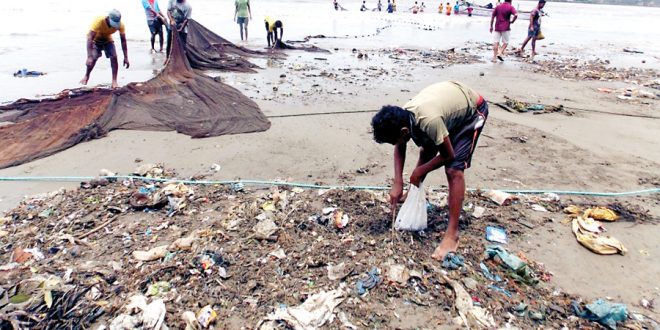Manohar Parrikar, Star or Sinner

The year 2012 was a turning point in the history of Goan politics.
In the background was decades of political instability, 11 Chief Ministers in a row,a state shamed by buffoonery and display of callousness on national media by political leaders, endless series of corruption scandals, abuse of the environment and de facto mafia rule change was inevitable.
Finally, the average Goan citizen had decided enough is enough. The desperation was so much that the first time in Goa’s post-liberation history that Hindus and Roman Catholics came together to search for a messiah. I
It was a moment Manohar Parrikar was waiting for. Since 1974, he had systematically cultivated an image of articulate cerebral politician living in a small one bedroom flat and often riding pillion on a motorcycle of local party men or walking alone from the Secretariat deeply engrossed in thoughts. Parrikar, now a five times legislator from Panjaji, managed to engineer an alliance of the GSB and Roman Christians to upstage the dominant state-wide Hindu Bahujan Samaj to get the BJP a clear majority. For the first time, five Catholics won in the Assembly elections under the saffron flag.
In 2012, Manohar Prabhu Parrikar was the first IIT Graduate to become Chief Minister of a State in India. As a CM with a comfortable majority, long experience in both state politics as CM as well as opposition leader, Parrikar was expected to display the much needed new visionary, all-inclusive approach to statecraft. In short, start a new chapter in the brief history of the Goa state.
Let us just take two examples to illustrate how this simple & suave IITian failed to deliver on the economy and statewide solid waste management problem. It is no secret that all his predecessors have looked upon Goa as personal property with over 35 beautiful beaches, hugging the 105 km coastline and the back yard of Iron ore mines hidden behind hills partly razed and used as the garbage dump.
The need for an integrated public policy to manage the delicate balance between nature and human economic activities however, never occurred to Parrikar. Like his predecessors, he continued his focus on the two cash cows. 750 odd flights bringing in close to 200,000 tourists coming in every year and 1000 crores of revenue from iron ore mines. For him "development potential" in Goa only meant providing housing for the very rich. A diversified economy, intergenerational equity in resource management, employment generation, social infrastructure or providing medical care to the needy never figured in his plan.
Today in 21st century Goa, there is neither a comprehensive beach management policy nor a beach management plan for a single beach. Unlike the carefully managed beaches in developed countries, there is no system for parking, recreation, access and safety, beach nourishment, title issues and beach maintenance. Instead, we have the most undisciplined beach parking where access is a hurdle race; overcrowded beaches are with members of animal kingdom like cats, stray dogs, and cows merry making besides hordes of fellow human being among the rubbish of mix of beer cans, glass bottles, burnt out fires and fast food containers.
Instead, Parrikar launches a regressive and patronizing Ladli Laxmi Scheme, which touts on the official website its objective as “Giving Her a Chance to Live the Beauty of Her Dreams,” all with a one-time dole of Rs.1.5 lakhs.
Secondly, Parrikar never bothered to understand one of the critical bottlenecks to the sustainable development of his state. “An integrated state-wide approach to Solid Waste Development.” He did not ensure provisions in the state plans to address garbage management despite state-wide citizen protests.
A civic activist has written in a newspaper report that, if you live in Goa's villages, chances are you burn your garbage in your backyard. Or worse, load it into your car and take it to one of the cities or a national highway to furtively dump it. And if you live in a town, the town municipality piles it into overflowing trucks to dump it in one of the nearby villages. The municipality vehicles try, nonetheless, to sneak into villages to dump the garbage. And despite at times violent displays of protests, the government is yet to identify a landfill site to dump waste generated by the major cities.
In fact, for the size of Goa, all that is needed is just one or two garbage dumps and a solid waste management system to process and deal with the trash. Or an even better approach could be decentralized village level vermicomposting plants which are not a rocket science by any standard.
But then came a clarion call (or order?) and Manohar Prabhu Parrikar terminated his chief ministerial duties to rush to Delhi as Defence Minister.
In the process, he also earned the distinction of not completing his tenure thrice, due to detractors or benefactors.
Who then is the real Bhagauda (a favourite word with the media), the one who resigns on principles because he was not able to fulfill his promise to the electorate, or the one who abdicates his responsibility towards the electorate for reasons best known to him.
(The writer is a global marketing and public policy consultant).



